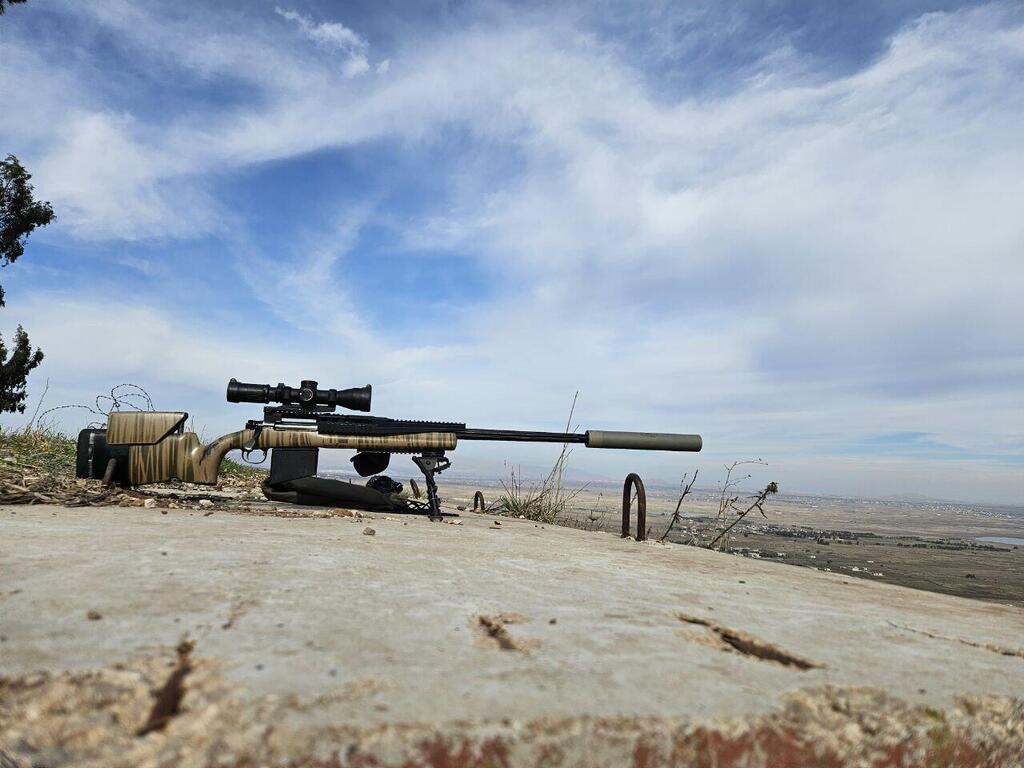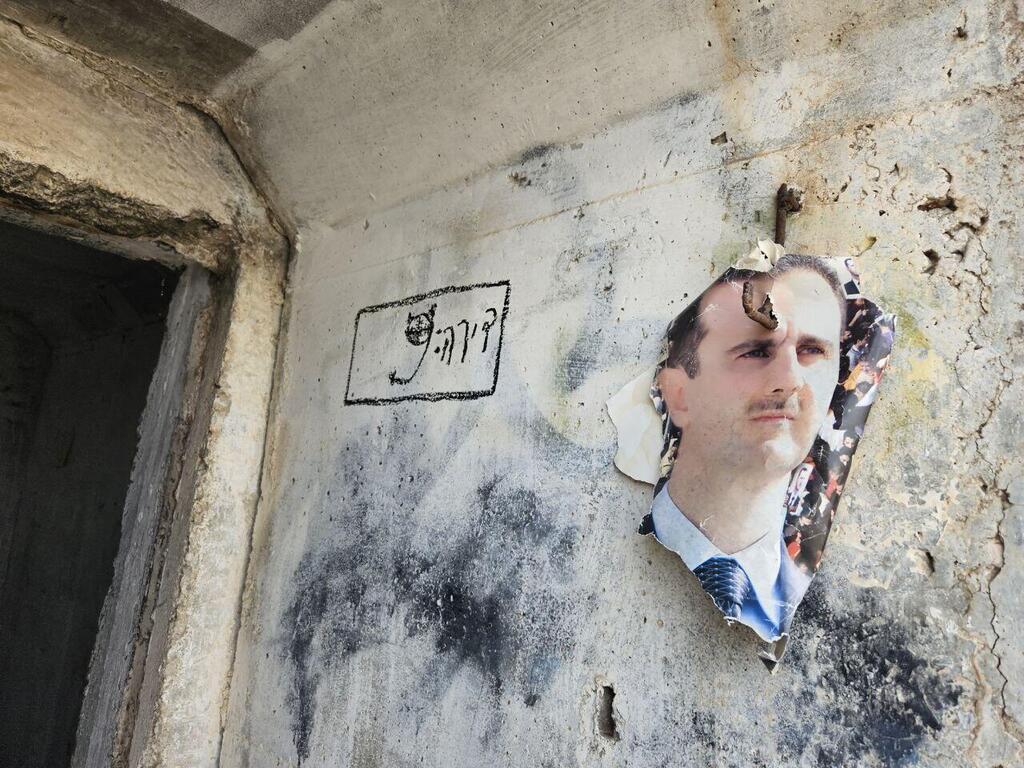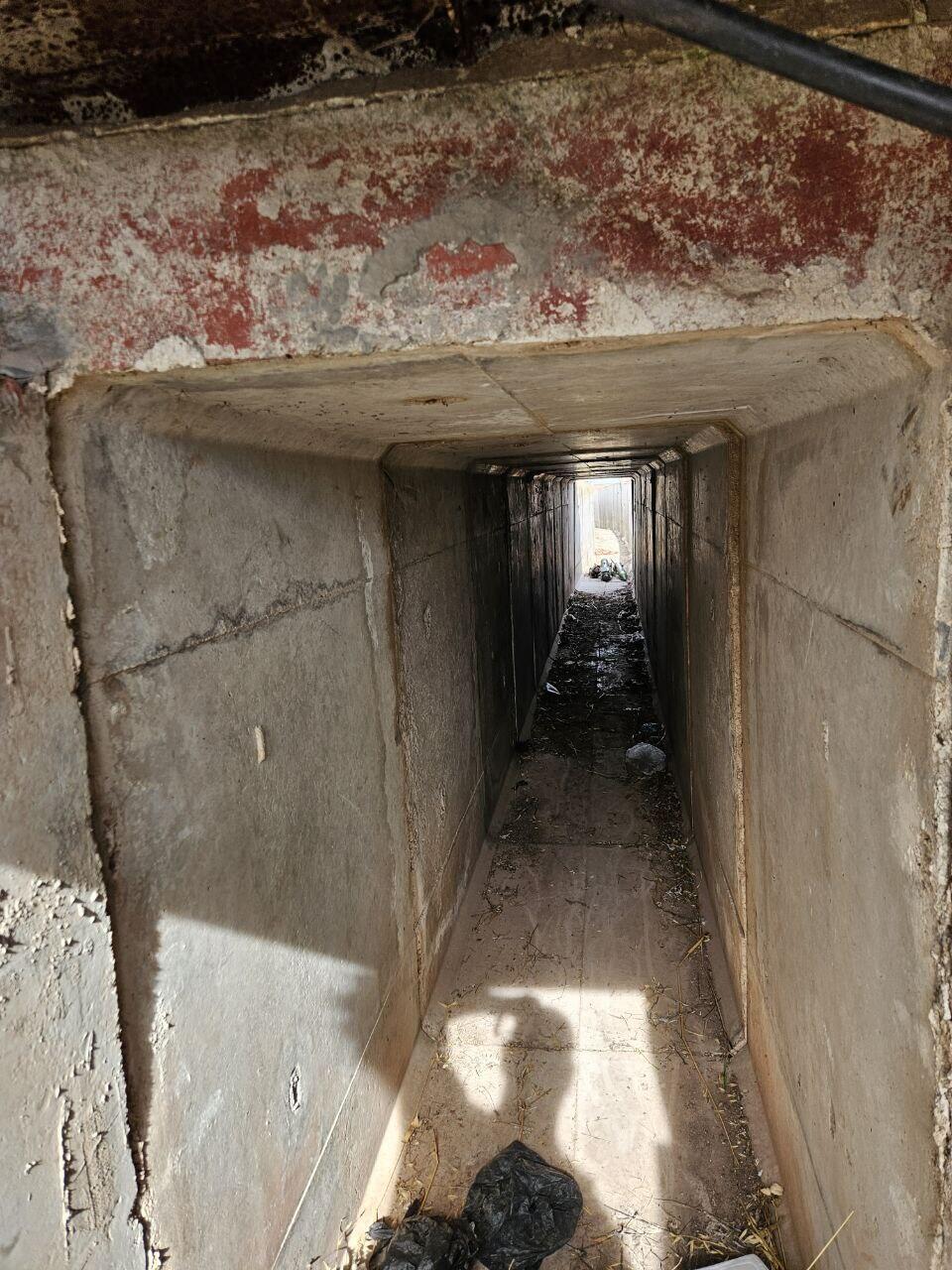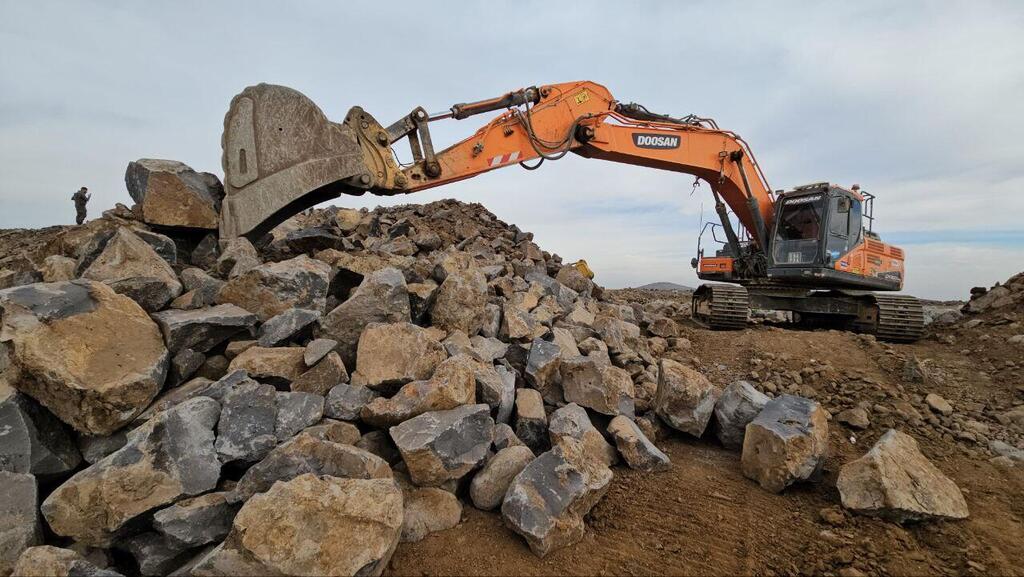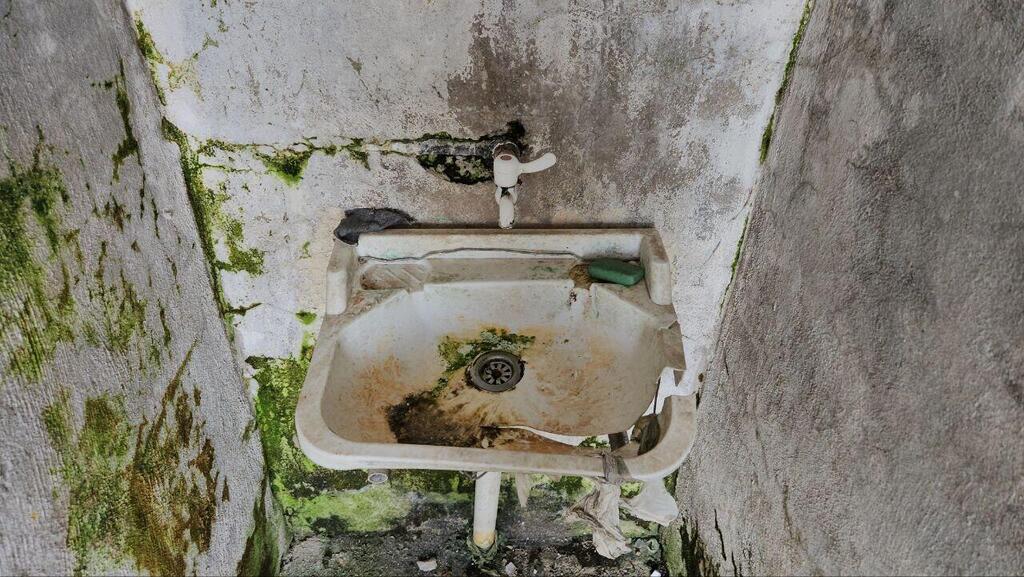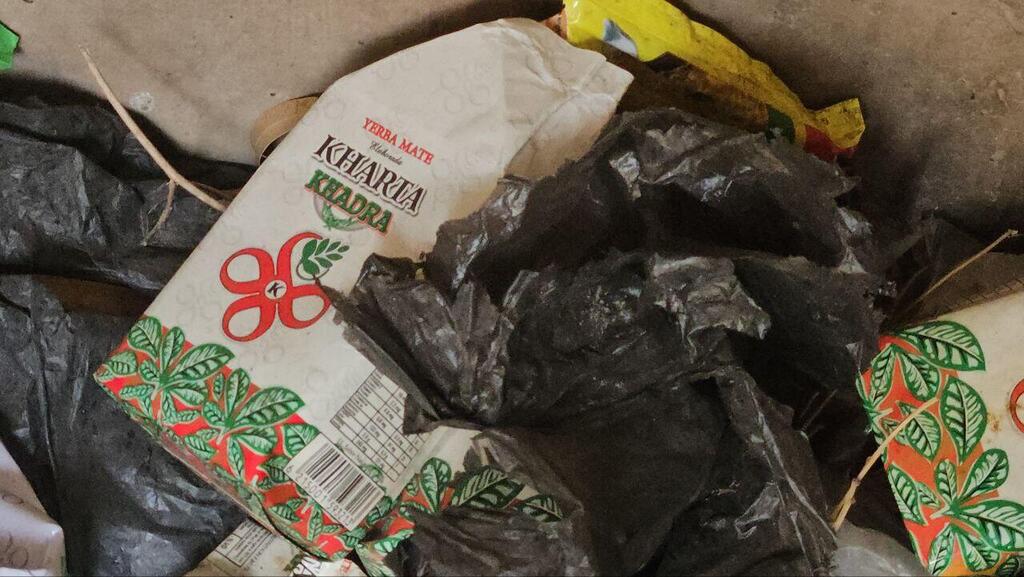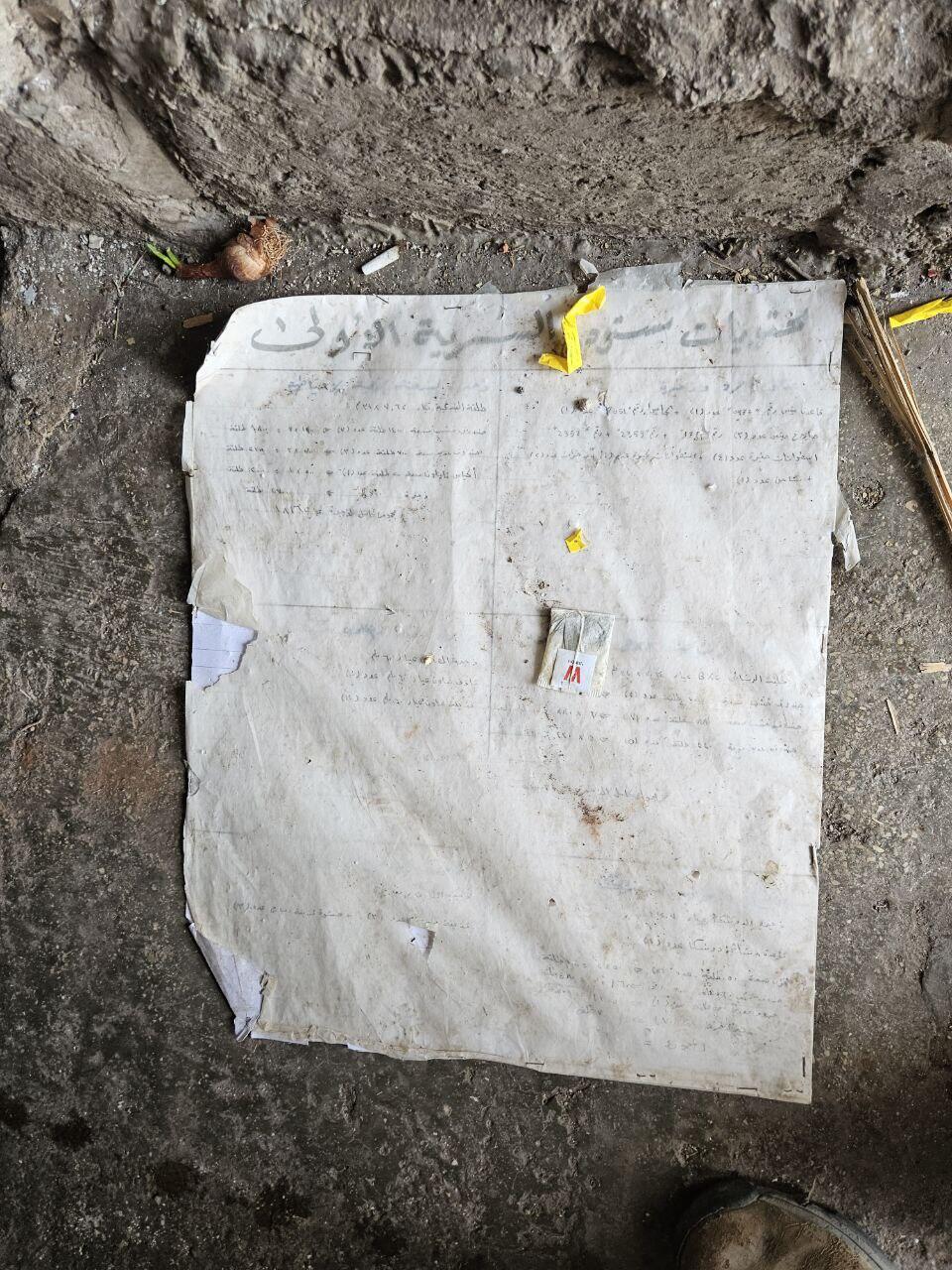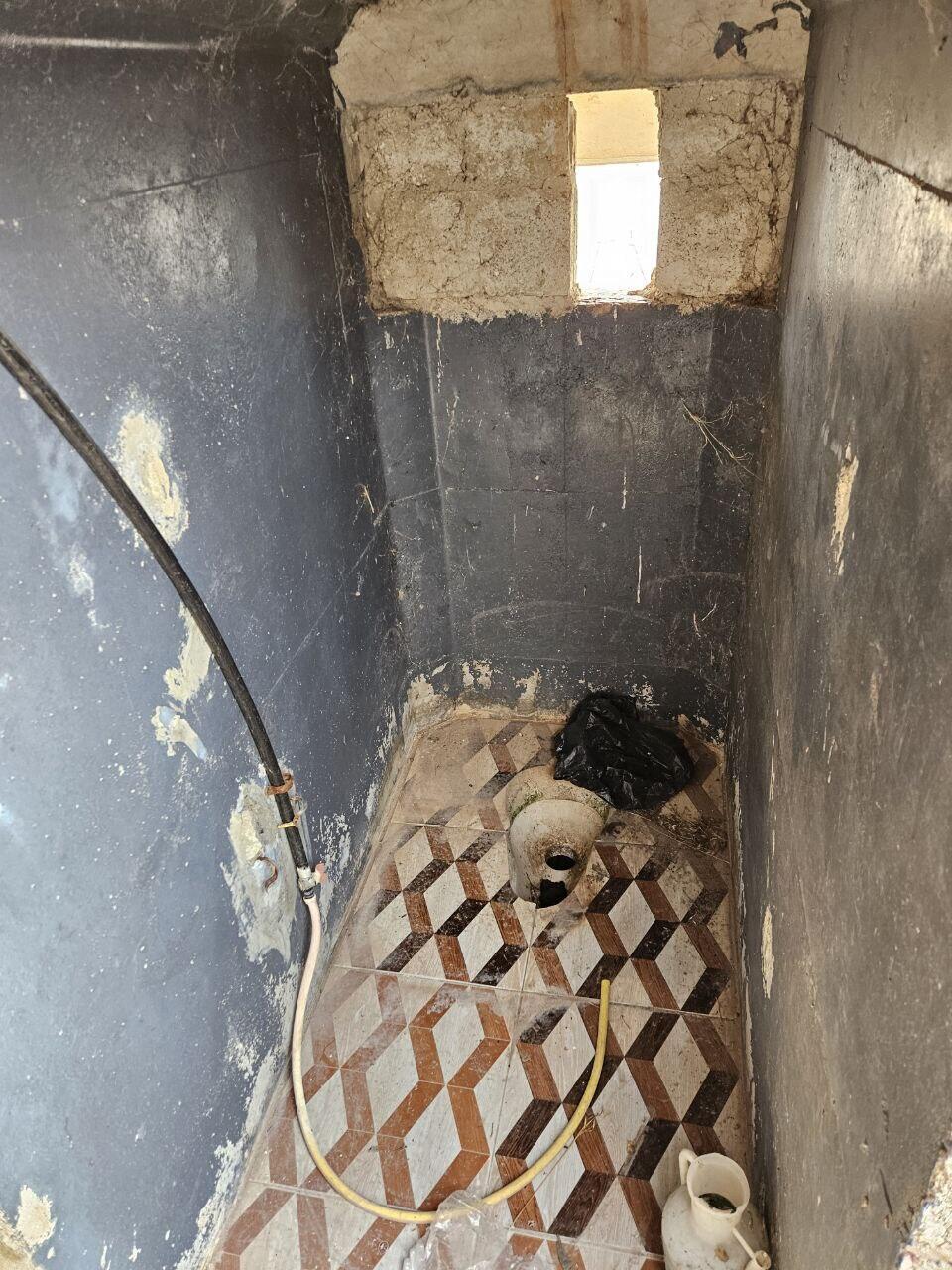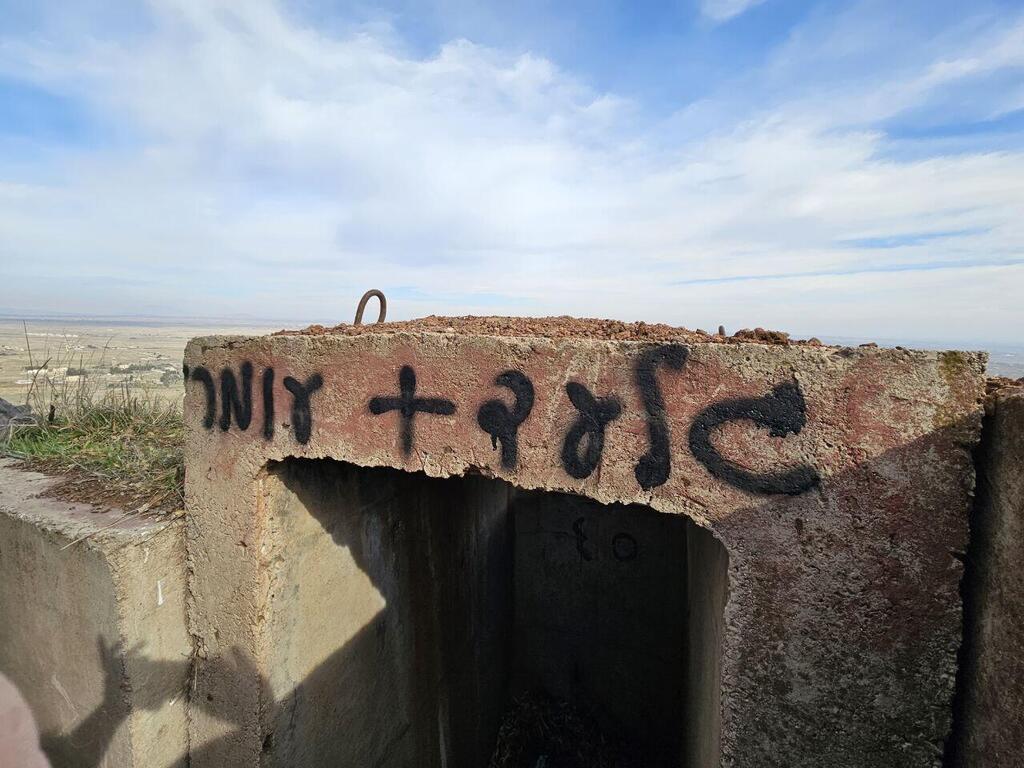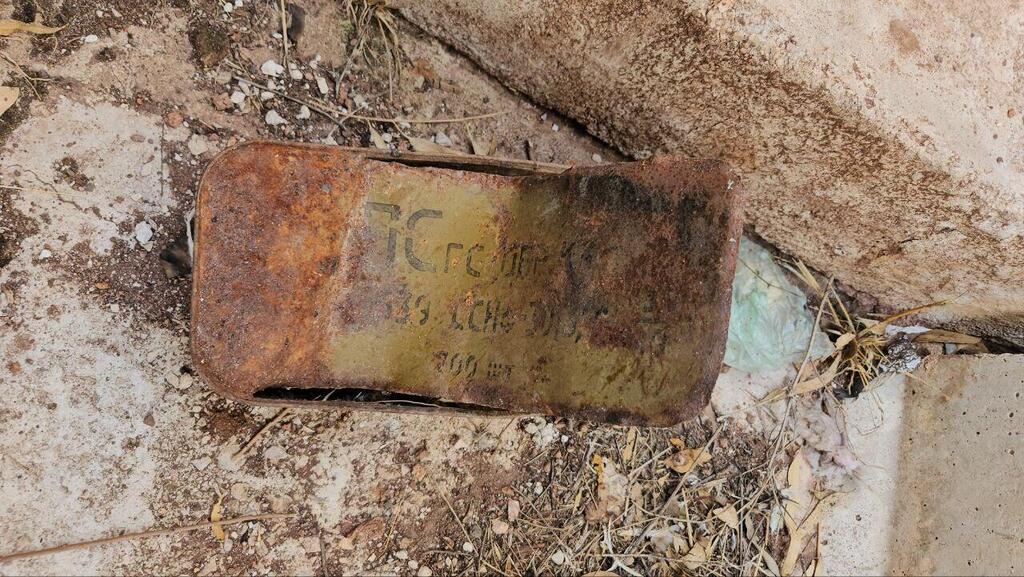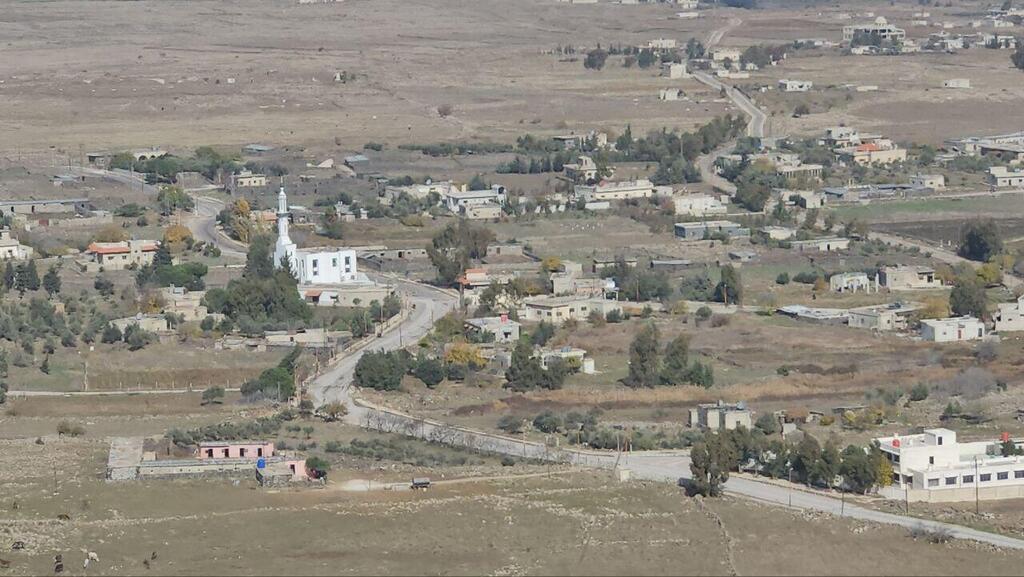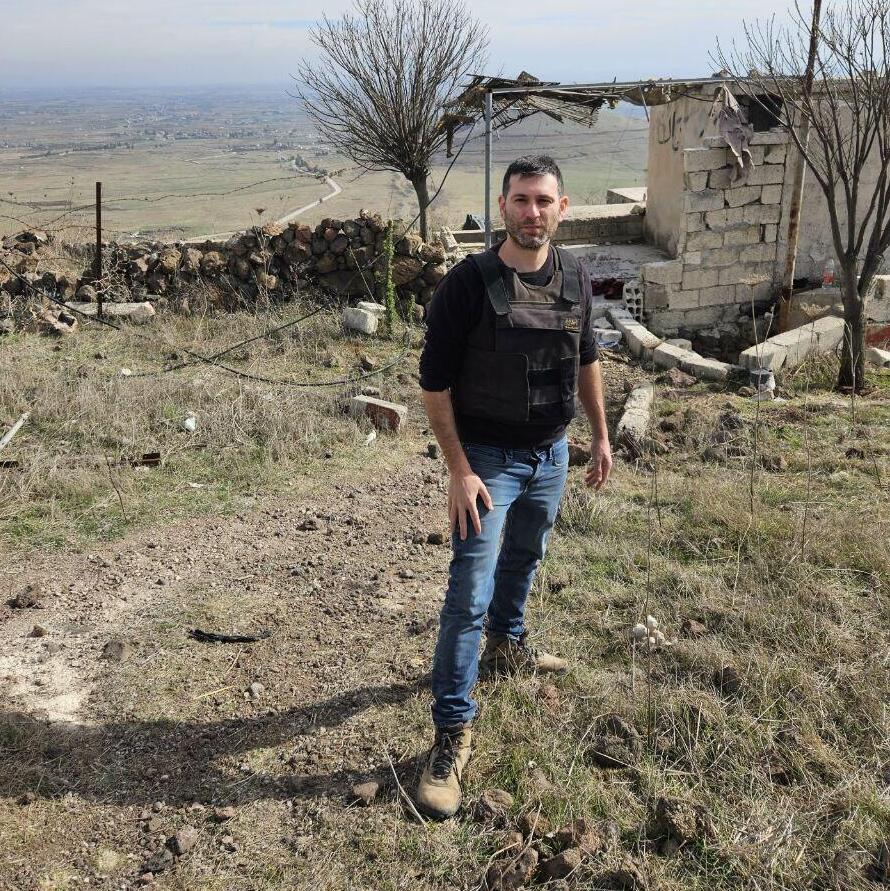Getting your Trinity Audio player ready...
In a historic move on the Syrian Golan Heights, IDF forces have completed the capture of five key sectors in the buffer zone beyond the border with Syria.
Over the past two days, thousands of residents from seven local villages have effectively come under the protection of IDF troops from the Paratroopers Brigade, the 188th Armored Brigade, the 7th Armored Brigade and the Commando Brigade.
Footage of IDF operations in Syria: Striking armed weaponry truck
(Video: IDF)
The weekend operation, which involved seizing outposts and positions, was conducted without resistance. Syrian soldiers abandoned their security posts facing Israel, retreating eastward on trucks and not returning.
Armed rebels, reportedly from the Daraa area and unaffiliated with the extremist group Hayat Tahrir al-Sham (HTS), alerted some Syrian troops about the IDF's advance. In some instances, these rebels looted a UN post, though Israeli forces later mediated to ensure the stolen weapons and equipment were returned to UNDOF observers, who remain in the area but hold little practical influence.
The long-standing 1974 ceasefire agreement between Israel and Syria under former autocrat Hafez Assad is now effectively obsolete, as a new, undefined political entity has taken power in Damascus, unrecognized by the international community.
In response, the IDF is preparing for an extended presence in Syrian territory, roughly five to seven kilometers beyond the international border, until a stable governing authority assumes control of the region and renews or renegotiates the longstanding accord between Jerusalem and Damascus.
The decision is driven by a determination to avoid a scenario where the border mirrors the volatile conditions seen along the Gaza Strip and Lebanon prior to October 7, with armed terror groups operating near Israeli communities.
To bolster security, the IDF is racing to complete engineering defenses in the area. Approximately 15 kilometers (10 miles) of a new barrier have been constructed along the international border, known as the “barrel line,” located one to two kilometers east of Israel’s existing security fence.
Get the Ynetnews app on your smartphone: Google Play: https://bit.ly/4eJ37pE | Apple App Store: https://bit.ly/3ZL7iNv
The barrier includes deep trenches to block the advance of light vehicles such as pickup trucks, elevated earth embankments and the reinforcement of minefields. These measures complement the high-tech security fence built over the past decade along the 80-kilometer (50-mile) stretch from Hamat Gader to Mount Hermon.
'Not much was invested in these outposts'
IDF troops seized Syrian army outposts after soldiers hastily abandoned their bases, boarding trucks and fleeing east. "We found a few outdated tanks and anti-tank missiles we confiscated, rusty infrastructure and documents translating data about our forces for their troops," an IDF commander described. "It seems not much was invested in these outposts."
The commander noted that the IDF has already provided its soldiers with portable living quarters, explaining, "It's unpleasant to sleep in these Syrian bunkers. We've also brought in a generator and are clearing paths from Israeli territory ahead of the coming snow. Any potential threat will remain far from Israeli communities."
Meanwhile, forces from the elite Shaldag Unit completed an operation on the Syrian Mount Hermon, during which they confiscated explosives, mines, anti-tank missiles and other military equipment.
According to soldiers, Syrian villagers welcomed the IDF presence. "They didn’t throw rice or sweets, but many expressed relief at the fall of Bashar Assad’s regime. They remember the aid we provided during the last decade of civil war," one soldier shared. Life in the villages continues as usual, with locals openly conversing with Israeli troops, cultivating their land and tending livestock, no longer fearful of Assad’s soldiers.
The IDF troops, now settling into the area, describe a relatively calm environment. They walk without helmets, have decent phone reception and remain in high spirits. One soldier, a sniper from the 101st Battalion, observed from a fortified position previously held by a Syrian soldier. "I know this isn’t Gaza or Lebanon; it’s something completely different," he remarked.
Despite the unfamiliarity, most commanders—except for 210th Division Commander Brig. Gen. Yair Paley and perhaps the brigade commanders—had not trained for such operations, as the IDF discontinued Syrian outpost drills in the early 2000s. However, the army is making active efforts to establish good relations with the local population, even if temporary. Positive messages have already been sent to the governor of the region based in Khan Arnabah near Quneitra.
"We were prepared for Shiite jihadists from the pro-Iranian militias deeper in Syria, and now we’re preparing for Sunni jihadists. Both have similar pickup trucks, weapons and extremist ideologies," IDF officials explained.
REBELS COOPERATE WITH IDF
"The Syrian villages here are trying to make sense of the situation. They just want peace and a livelihood." Soldiers have been instructed to prepare for at least a year-long presence or until further decisions are made at the political level.
Brig. Gen. Paley, who commands the 210th Division overseeing the sector, emphasized: "We will continue to monitor and defend against any threat. Our mission is clear: to protect the citizens of Israel and the Golan."






